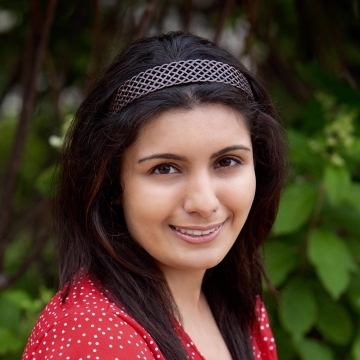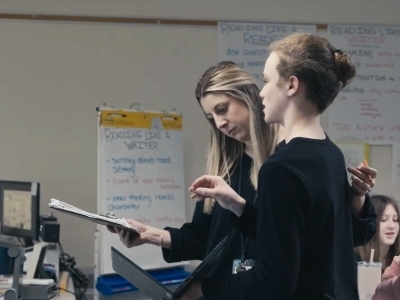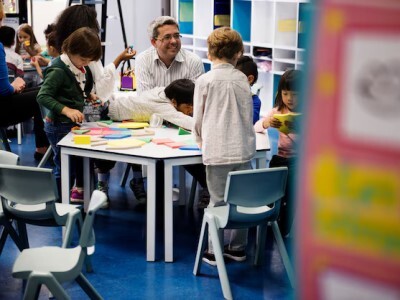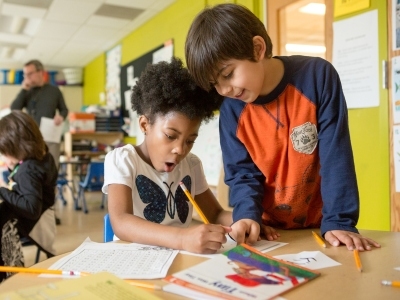Beyond the Classroom: How High School LAUNCHed My Path in College
Topics
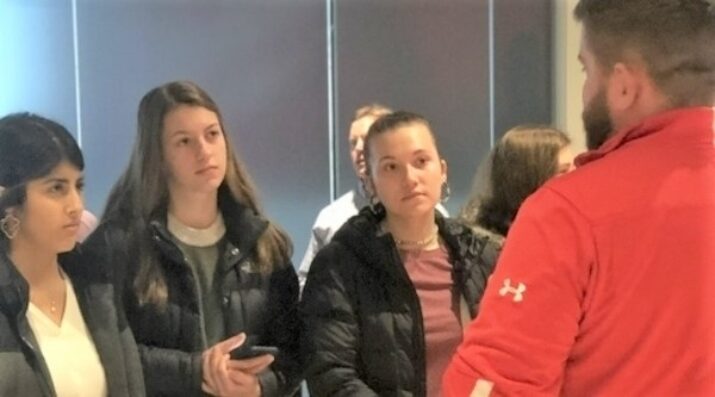
We’ve all had the experience of truly purposeful, authentic learning and know how valuable it is. Educators are taking the best of what we know about learning, student support, effective instruction, and interpersonal skill-building to completely reimagine schools so that students experience that kind of purposeful learning all day, every day.
Reflecting on a high school project-based career exploration program, a college senior offers K-12 educators her perspective on the kind of learning that leads to student success.
For many, high school is a pivotal time in life. In addition to traditional academics, students learn about who they are in many different aspects—whether it be through friendships, personal choices, or first glimpses of the future. Yet, also part of the high school experience is the feeling of uncertainty.
At the age of 16, I was a junior in high school and still trying to piece my identity together. Juniors have a lot on their plates, including standardized test prep, college admissions, and juggling personal relationships. In the Fall of 2020, my school district was also getting back into the swing of things after the Covid-19 pandemic. Looking back at that bizarre timeline, I remember being shy, lacking confidence, and not knowing what I wanted to do with my future.
Fortunately my perspective on things changed as I entered the second half of high school. I found myself in a situation where I was given trust, allowed to explore, and supported in ways I didn’t know existed.
This ‘situation’ was part of an off-campus mentorship program the school district offered called LAUNCH.
‘LAUNCHing’ Your Career
LAUNCH is an early career exploration program aimed at introducing high school students to various career fields. Some strands include Business Analytics, Hospitality, Medicine/Healthcare, and IT solutions. I was part of the Global Business strand. This particular branch of LAUNCH focused on student consulting. It supported various projects in a variety of fields such as marketing, research, finance, and communications. Our coaches, who were teachers at our respective district high schools, placed students in consulting groups based on their potential interests. From there, we were able to work with mentors at various companies across the country on real consulting projects.
Rather than memorizing information for a grade, I was applying knowledge through hands-on work that had real impact. This was the ultimate incentive to keep going.
One of the first projects I worked on involved designing a course curriculum in partnership with Ascension. My group and I were told to plan and create content for an online course that would eventually become a graduation requirement. The idea was simple: who better to design a course than the students who would take it? Looking back, as a 16-year old, being given an opportunity to work on this was a big deal. I also worked on a project with Milliman that dealt with marketing strategy and design. After conducting market research on the health insurance industry, my group and I produced a report and story-board that covered a new product Milliman had just come out with: Medicare Suggest.
What continues to stand out most about LAUNCH is how completely different the environment felt from traditional school. Instead of treating us like normal students, our mentors treated us like colleagues. That shift in mindset made all the difference. Rather than memorizing information for a grade, I was applying knowledge through hands-on work that had real impact. This was the ultimate incentive to keep going. The companies we partnered with trusted us with responsibility that mattered, and that trust pushed me to grow. In the process, I transformed from a shy, uncertain student into someone who could ask thoughtful questions, present ideas with confidence, and even take the lead when needed.
What Educators Can Apply to Any Classroom
After experiencing this kind of learning first-hand, I’ve often thought about what made it work, and how educators can create similar opportunities:
Trust Students: Real responsibility is powerful. When students know their work has meaning, they’re more motivated to accept the challenge. For example, being asked to design curriculum and being able to contribute to marketing strategy showed me that my ideas mattered. That trust is what helped me grow.
Step Back, but Stay Connected: Our coaches didn’t micromanage us. We were responsible for scheduling meetings, managing communication, and completing projects ourselves. If we weren’t able to complete them, we dealt with the consequences like true professionals. While we did have check-ins and surveys that kept us grounded, we were given responsibility for ourselves; and ultimately that balance gave us both independence and accountability.
Control and Empowerment: High schools traditionally focus on directing every detail. However, in the workplace success depends on making decisions, adapting, and learning from mistakes. By stepping back, educators give students space to discover their own abilities.
For me, these elements were transformative. They helped me move from self-doubt to confidence, and from seeing myself merely as a student to viewing myself as a professional in training.
When schools create spaces for independence, trust, and real work, students don’t just learn about the world, but they begin to shape it.
Students Need More Independence, Trust, and Real Work in High School
I wrote about my experiences with LAUNCH for NGLC in a co-authored article back when I was still in high school. As I reflect on my own journey four years later, now a senior at UW-Madison, I realize just how much LAUNCH influenced my path in life. If I didn’t join this program, I wouldn’t have decided to apply to the business school. The confidence I gained from working with professionals at such a young age gave me the confidence to pursue multiple internships, speak up in classes, and take on leadership roles. My presentation skills were already polished by the time I entered undergrad, and I always had the confidence to present to large classes.
Beyond the projects and presentations I’ve done, what I carry with me most is a mindset. For me, hard work, curiosity, and self-belief are three important principles to be successful in this day and age. As I look back, I see clearly what made LAUNCH so powerful—and why I believe similar programs should exist in every school. Programs like LAUNCH remind us that students are capable of far more than we assume. When schools create spaces for independence, trust, and real work, students don’t just learn about the world, but they begin to shape it.
Photo at top courtesy of LAUNCH program of the School District of Elmbrook.

